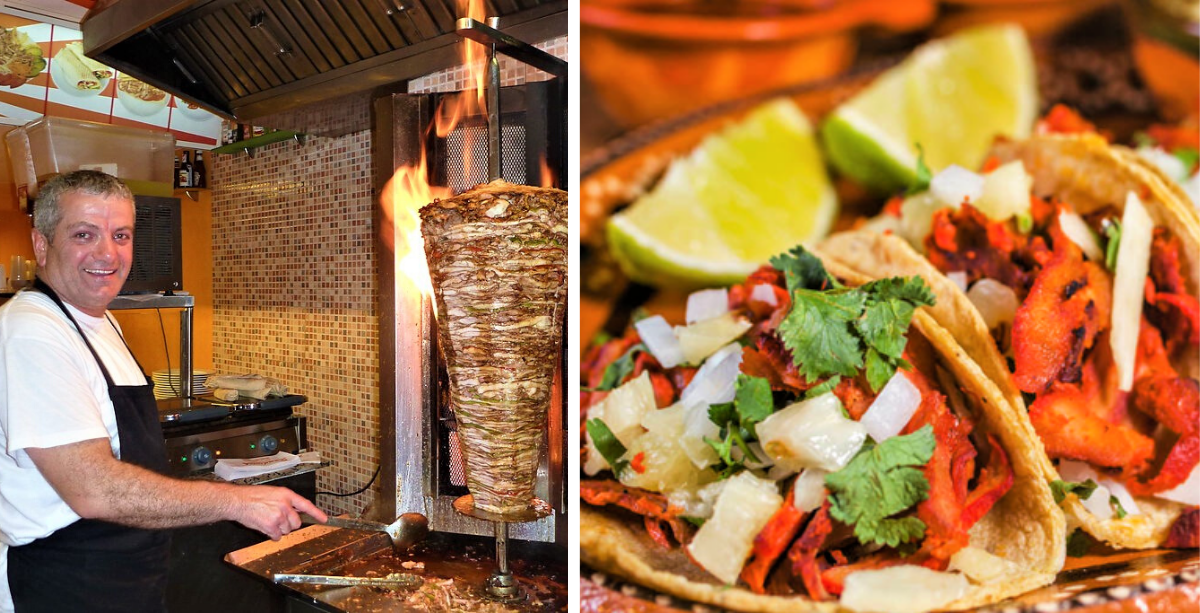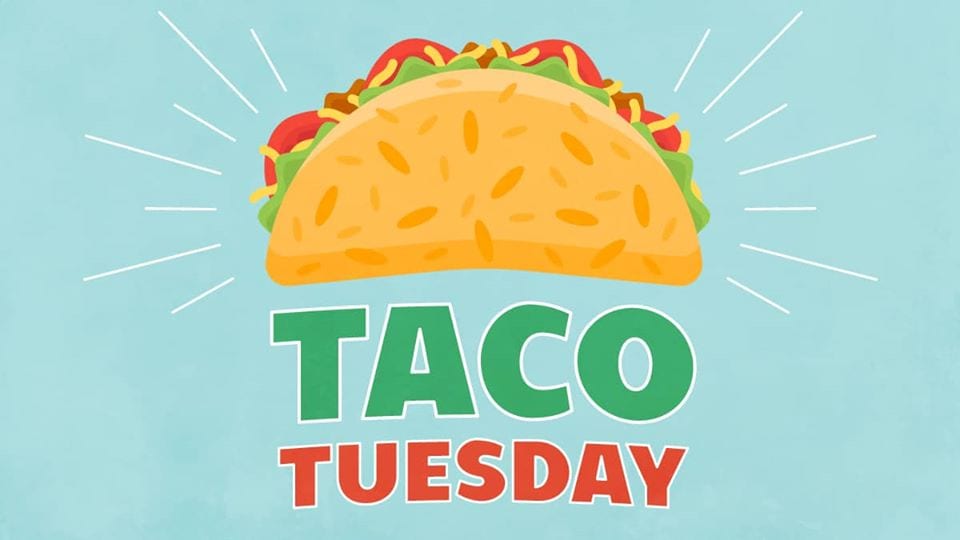This is the most important day of the week, it’s Taco Tuesday! This story will make you hold your head up high on this special day. It is a story about history, migration, and flavor.
Tacos Al Pastor, that literally translates to “shepherd style”, is a taco made with spit-grilled pork.
It is a popular street-food in Mexico that has spread to the United States but is enjoyed and craved all around the world.
In some places of northern Mexico, though, it is known as Tacos De Adobada. A similar dish from Puebla with different spices is Tacos Arabes.
Al Pastor’s pork is marinated in a combination of chilies and spices, then slowly cooked on a vertical rotisserie: a Trompo or spinning top. (Looks familiar?)
The meat spins around in front of an open fire, and when the outer layer is grilled, the Taquero (person who prepares the tacos) cuts off, with quick and trained hands and a big knife, these layers that fall in small pieces directly into the tortilla.
These pieces pile on top of each other and the Taquero sprinkles the other ingredients inside the tortilla (pineapple, onion, cilantro, salsa, and avocado). And voila! The tacos are ready to be served and then devoured.
Does the process sound familiar? Maybe because this is how Shawarma is made, and the Trompo as we know it is Sikh El Shawarma. This is no coincidence.
Tacos Al Pastor is based on the lamb Shawarma recipe brought by Lebanese immigrants to Mexico. It is Mexico’s signature and most popular dish, but it was brought into existence by Lebanese immigrants.
The Al Pastor you eat and love today is a combination of two cultures: traditional Middle Eastern food and cooking method, and Mexican ingredients and flavors.
However, due to cultural differences, the lamb was replaced by pork, which meat is not popular in Lebanon, but the same Lebanese style was used in making Al Pastor.
In 1892, the first Lebanese people reportedly arrived in Mexico. They settled in the state of Puebla, just a few hours south of Mexico City.
These Lebanese immigrants started opening their own restaurants and then combined their traditional cuisine to Mexico’s.
They brought their famous technique of spit-roasted lamb meat to Mexico in the early 1900s. Although others argue that the first vertical roasting spit appeared in Puebla around 1930.
Jeffrey Pilcher, the author of Planet Taco: A Global History of Mexico Food, explained the history with more details to BBC:
“Migrants from the Middle East started to come to Mexico from the end of the 19th Century. They came in much larger numbers in the early 20th century when the Ottoman Empire was crumbling.”
“They brought their culture with them, including their food. As they settled and opened restaurants in the 1930s they were selling the Shawarma and they were calling it Tacos Arabes – Arab Tacos,” he explained.
Tacos Arabes originated from Puebla in the 1930s from Arab Mexican cuisine. It is made Shawarma-style and served in a pita-style bread called pan arabe. They were brought by Mexican immigrants to the US in the past few years, where they became a big hit, in Chicago and Los Angeles especially.
A lot of restaurants in Mexico, especially in the city of Puebla, still serve an alternated version of Tacos Arabes.
The original version of the Taco Arabes lacked the mix of spices and natural coloring agents used in Tacos Al Pastor today.
By 1960, many restaurants started experimenting with tacos: “One of the new tacos that starts to get popular at this time is developed by the second generation of Lebanese-Mexicans,” says Pilcher, “the kids of those original migrants who are taking that Shawarma technique and then updating it.”
These experimentations resulted in Tacos Al Pastor that soon became a traditional Mexican dish made with traditional Mexican ingredients.
It is now made with pork, not lamb, and is marinated in a variety of spices that could include achiote seed or paste, ground red chiles, and various other herbs.
The Lebanese version also didn’t include chopped cilantro and onions. It also didn’t include the slice of pineapple on top of the Trompo.
What is now left of the Lebanese touch to Tacos Al Pastor is the Trompo, the big knife, the cooking method, and then the strips of meat falling down onto the bread.
But the history remains in the name: Al Pastor, or shepherd style, is believed to refer to the type of meat that was originally used, with the lamb being a grazing animal.
Fascinating enough, this dish found its way back home to Lebanon in the early 2000s: a chicken version marinated in Al Pastor style and identified as Shawarma Mexici.
It is served Lebanese-style, with garlic, mayonnaise, dill pickled, and thing flatbread.
So happy Taco Tuesday to all Lebanese taco lovers! Don’t forget your ancestors on this day and remember…























